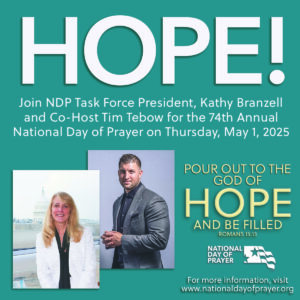
DETROIT (BP)–For the third straight contest, self-professed evangelicals voted Jan. 15 for a different Republican presidential candidate who, in each case, was the winner.
Voting in the Michigan GOP primary, 34 percent of voters who identify themselves as either born again or evangelical voted for Michigan native Mitt Romney — who won the primary — while 29 percent chose Mike Huckabee and 23 percent John McCain, according to exit polls.
One week earlier in New Hampshire, Huckabee and winner John McCain split the evangelical vote, getting 28 percent each to Romney’s 27 percent. And in the Jan. 3 Iowa caucuses, Huckabee won 46 percent of the evangelical vote to propel him to an easy victory there.
Although evangelicals have yet to rally around one candidate, thus far a plurality from that category have voted for the victor each time.
Romney, whose father was governor of Michigan in the 1960s, won the state with 39 percent of the vote to McCain’s 30 percent and Huckabee’s 16 percent. Romney also leads the nationwide delegate count with 42 to Huckabee’s 32 and McCain’s 13, according to a RealClearPolitics.com tally. A candidate needs 1,191 delegates to become the nominee.
“Tonight marks the beginning of a comeback — a comeback for America,” Romney told supporters. “Only a week ago, a win looked like it was impossible, but then you got out and told America what they needed to hear.”
In the three contested elections thus far, the GOP has produced three different winners. That theme will be tested Saturday when South Carolina’s Republicans hold their primary and Nevada’s Republicans hold their caucus. Recent polls have shown Huckabee and McCain in the top two in South Carolina, with Romney and McCain in the top two in Nevada.
South Carolina will provide Huckabee, a former Southern Baptist pastor, an opportunity to sway the state’s evangelical voters, who make up a larger percentage of the GOP electorate there than in New Hampshire or Michigan, where evangelicals comprised 23 percent and 39 percent of GOP voters, respectively. In Iowa, where Huckabee won, evangelical voters made up 60 percent of voters.
Much of Huckabee’s base has been churchgoers:
— In both Michigan and New Hampshire, Huckabee led among Republicans who attend church more than once a week, receiving 37 percent of that category in Michigan and 34 percent in New Hampshire. Among those who never attend church, he finished fourth and fifth, respectively.
— In Michigan, he led with 37 percent among GOP voters who say the religious beliefs of a candidate matter a “great deal.” In Iowa, he led with 56 percent in that category, while in New Hampshire he finished with 28 percent, second only to McCain’s 34 percent.
After finishing third in Michigan, Huckabee predicted he would win South Carolina.
“We’re running well here. We’ve got great support,” he said from South Carolina on Fox News. “… People here are looking for somebody who … represent[s] what they stand for, which is a pro-life, pro-family, pro-Second Amendment, lower taxes, actual running-a-government [candidate]…. They want results. They don’t want people just talking about it.”
Romney won the Jan. 5 Wyoming caucuses, where only a handful of candidates campaigned. No exit polls, though, were conducted.
The Michigan Democrats also held their primary, although winner Hillary Clinton was the only major candidate on the ballot. The state’s delegates, in fact, may not be seated at the convention because the state party held the primary earlier than the national party wanted. Democrats will hold their caucus in Nevada Saturday but won’t hold their primary in South Carolina until Jan. 26.
–30–
Michael Foust is assistant editor of Baptist Press.
















